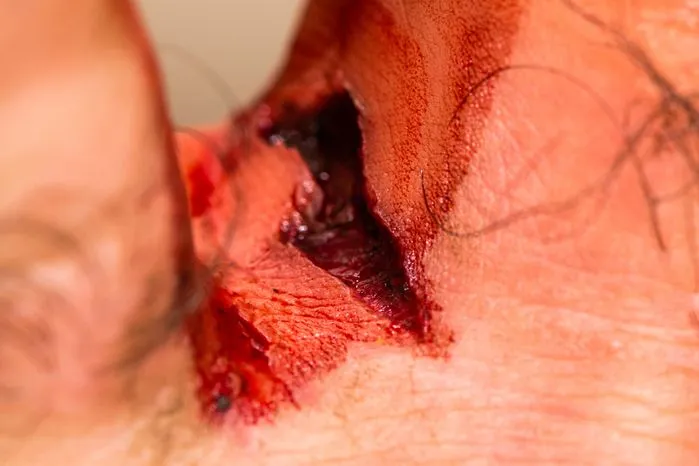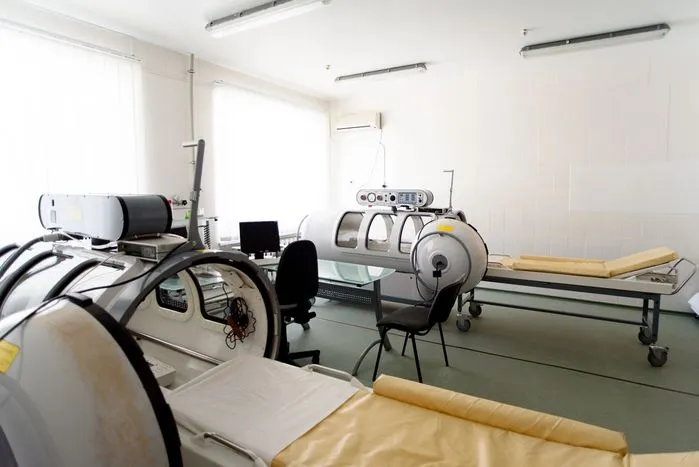The Wound Pros’ Opinion on How to Heal Deep Surgery Wounds Faster
At TheWoundPros.com, we focus on methods that support the body’s natural healing process. Keeping the wound clean and moisturized is essential, and natural products help by creating a barrier and reducing inflammation. Nutrition is also crucial. Gentle movement and light exercise improve circulation without straining the wound.
Key Takeaways
- A healthy diet is a crucial component that helps in the process.
- Never forget to hydrate to support your journey to recovery
- Proper rest is also a must when recovering from surgery or any type of injury.
- After getting medical clearance, light physical activities for better blood circulation and overall health.
- Natural helps decrease inflammation and soothe wounds. However, never skip getting treatments from a medical practitioner.
Understanding the Wound Healing Process
Healing, a critical component of this journey, proceeds in stages.
Hemostasis marks the beginning, forming a blood clot to curb excessive blood loss.
Following this comes inflammation. Also, regeneration of tissue, primarily made up of collagen, starts to rebuild the wound.
In the final maturation phase, the closure is completed, and the new tissue gains strength.
Nutritional Boost for Healing
An enriched diet, balanced with proteins and vitamin supplements, significantly aids the body's self-repair ability.
Sources of high-quality protein, like lean meat, fish, eggs, and legumes, provide necessary nutrients for recovery. Supplements of vitamins facilitate wound healing as well.
Before initiating any new regimen, consultation with a healthcare provider is advised. Each person has distinct nutritional needs, especially after surgery.
Herbal Remedies for Faster Recovery
Herbal teas, such as chamomile, offer beneficial anti-inflammatory effects, supporting the process while easing discomfort following surgery.
Topical applications, too, contribute to quick recovery. For instance, lavender essential oil offers antiseptic and anti-inflammatory benefits.
Consider talking to a specialist when considering this path.
Beneficial Physical Exercises
Well-executed exercises, under professional supervision, help in the healing process.
Beneficial low-impact activities encompass walking or light aerobics. Kind to the body, these activities strengthen the immune system and augment overall health.
Remember that each recovery process is unique to the individual. Exercise types and intensity need to match each person's health status and recovery speed. Before embarking on any exercise regime post-surgery, consultation with your healthcare provider is essential.
Importance of Hydration and Rest
Taking enough fluids helps nourish your body by sending the healthy stuff throughout. It also removes toxins in the process. Drinking enough water aids in transporting nutrients and oxygen efficiently to the wound, which helps to speed up healing.
Rest, on the other hand, is equally key. This isn't just about getting plenty of sleep, but also about giving the body the necessary downtime to repair and regenerate tissues. Most healing occurs when you're at rest, notably during stages of deep sleep.
To recover faster naturally after surgery, always remember: to exercise, hydrate, and rest. Having these three in place sets the stage for a speedy and smooth recovery.
Frequently Asked Questions
How can I speed up the healing of a wound?
It is possible to speed up the healing of a wound by keeping it clean, moist, and covered. Applying an antibiotic ointment also helps speed up the process.
Do wounds heal faster, covered or uncovered?
Keeping a wound covered helps to prevent infection and keeps the wound moist, which helps to speed up the healing process. It also protects the wound from further injury.
What factors make wound healing faster?
Several factors make wound healing faster. These include good nutrition, proper wound care, avoiding smoking, and managing underlying conditions like diabetes. Getting enough sleep and reducing stress also contribute to faster wound healing.
Does hot water heal wounds?
Hot water does not necessarily heal wounds. Applying hot water to a wound causes further damage.
What promotes rapid healing?
Proper wound care promotes rapid healing. This includes cleaning the wound, applying an antibiotic ointment, and keeping it covered. Eating a balanced diet, staying hydrated, and getting plenty of rest also aids in rapid healing.
What stimulates wound healing?
Growth factors stimulate wound healing. These are proteins that the body naturally produces to repair tissue damage. Applying treatments that contain these growth factors helps to speed up the healing process.
Why put vaseline on a wound?
Vaseline keeps the wound moist. Keeping a wound moist helps prevent a hard scab from forming. It also creates a barrier that protects the wound from bacteria and other irritants.
What is the best ointment for open wounds?
The best ointment for open wounds is typically a topical antibiotic like Neosporin or Bacitracin. These ointments help to prevent infection and speed up the healing process.
Should you put Neosporin on an open wound?
Neosporin provides benefits for an open wound as it contains antibiotics that help prevent infection. However, some people are allergic to the ingredients in Neosporin.
What is the hardest wound to heal?
The hardest wounds to heal are those that are large, deep, or infected. Chronic wounds, such as pressure sores and ulcers, are also difficult to heal due to underlying health issues like diabetes or poor circulation.
What speeds up the healing process?
To speed up the healing process, it is vital to keep the wound clean and protect it from further injury. Applying a topical antibiotic and keeping the wound covered also help. In addition, maintaining a healthy lifestyle with good nutrition, adequate sleep, and stress management promotes faster healing.
What delays wound healing?
Several factors delay wound healing, including smoking, alcohol consumption, poor nutrition, and underlying health conditions like diabetes. Stress, lack of sleep, and certain medications also slow down the healing process.




.webp)

.avif)